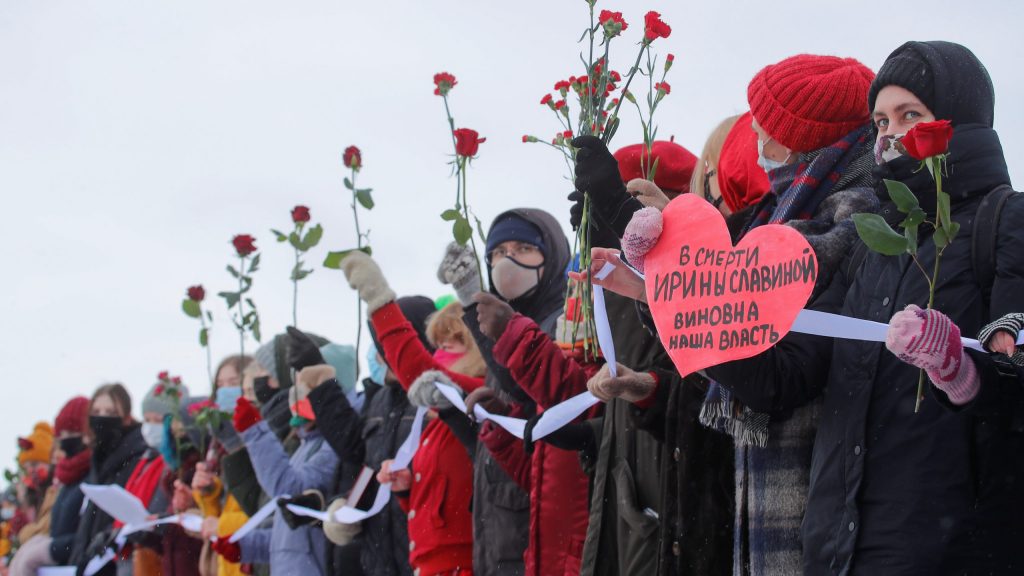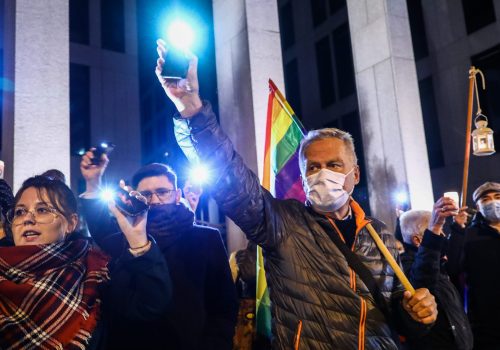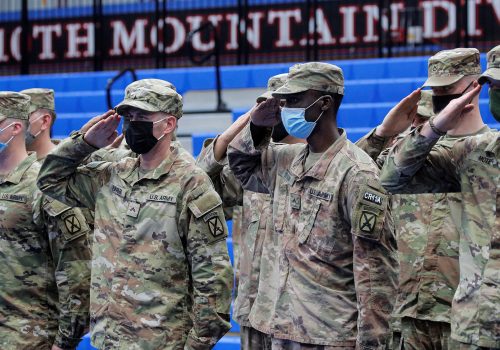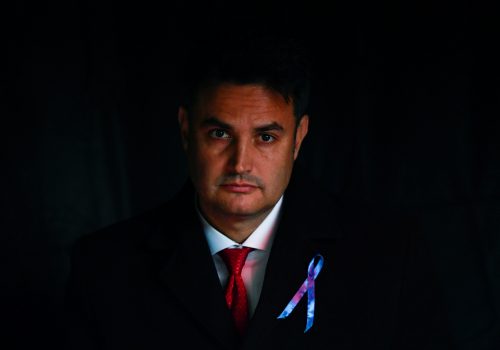Democracy-watchers in Washington and far beyond are reeling after Fred Hiatt, the Washington Post’s longtime editorial page editor, died Monday at age 66.
A renowned champion of democracy and human rights, the three-time Pulitzer Prize finalist was widely respected for his commitment to those ideals throughout his forty-year career at the Post.
“He had remarkable intellectual reach, an unwavering conscience, and an amazing eye for talent,” said Atlantic Council President and CEO Frederick Kempe. “I’m not sure anyone has been a more important force in journalism for democracy and freedom.”
We asked several experts in the Atlantic Council network who knew Hiatt to contribute their thoughts on the veteran journalist and his legacy:
Melinda Haring: ‘Opposition leaders had no better friend’
After reading and admiring Fred Hiatt and his writing for years, as well as working with his daughter, I was shocked when I finally met him: Low-key, modest, and supremely interested in others, Fred was so un-Washington-like. He spent most of the conversation telling me about the children’s books he had written. I’d met him at an unglamorous human-rights event on a subject that would have never made it above the fold; an editor of his stature could have been doing many other things. But not Fred, who was joined by his wife and daughter.
Fred cared deeply about the cause of human rights and democracy around the world. Few have done more from Washington to make the moral case for democracy and to defend human rights and freedom. Opposition leaders had no better friend than Fred: He was the first port of call for many on their trip to Washington, and his clear and lucid prose guided and encouraged all of us to work harder to make the world a bit more just. Fred’s memory is a blessing, and his death is a huge loss for the Washington Post and for all of us.
—Melinda Haring is the deputy director of the Atlantic Council’s Eurasia Center.
Daniel Fried: ‘He refused to fall into lazy thinking’
Fred Hiatt cared about the deeper ideals that have animated US strategy. He knew that those ideals—democracy, human rights, and an international order based on these to the degree that the crooked timber of humanity will allow—are no affectation or luxury, but rather make up the foundation of American interests. He seemed uninterested in the darker Washington sports of who’s up and who’s down, tactics, or snark and cynicism. He seemed indifferent to partisanship.
Fred was, however, passionate about what politics can do to advance US interests and values around the world. That’s what made his writing so fresh: He refused to fall into lazy thinking, clichés, or predictable tropes. His death is a blow to all of us who try to work, as he did, according to these principles. His loss is a great and untimely one.
—Daniel Fried is the Weiser Family distinguished fellow at the Atlantic Council and former National Security Council senior director, ambassador to Poland, and assistant Secretary of State for Europe.
Anders Åslund: ‘He understood Russian politics better than any other foreign journalist’
From 1991-95, Fred Hiatt and his wife, Margaret “Pooh” Shapiro, ran the Washington Post bureau in Moscow, where they followed the rise and fall of Russia’s reform effort. As economic advisor to the leading reformers in the Russian government, I had the great pleasure of coming to know them. No foreign journalist had greater access to figures like Yegor Gaidar, Boris Fyodorov, and Anatoly Chubais—probably because he understood Russian politics better than any other foreign journalist. While reporting factually and accurately, he did so with great sympathy.
To my disappointment, Fred never wrote a book about his experiences in Russia; perhaps because they touched him too profoundly, or perhaps because the reforms weren’t more successful. But I think these experiences help shape him.
Fred and I also had a close common friend in Boris Nemtsov, the leading liberal politician and human-rights advocate who was murdered outside the Kremlin in 2015. Fred always stood by Nemtsov, but he also broadened his support for human rights, democracy, freedom, and the rule of law to the whole world.
—Anders Åslund is a former resident senior fellow at the Eurasia Center.
Paula Dobriansky: ‘Fred had a real impact on countless foreign-policy issues’
On December 6, we and the Washington Post lost a most talented journalist and a great editorial page editor in Fred Hiatt. Fred was a tireless champion of human rights, an astute analyst of Russian foreign and domestic policies, a superb writer, and a dear friend. While Fred vigorously espoused the cause of human rights throughout the world, I especially admired how he dealt with grave human-rights violations in Burma and was relentless in highlighting the myriad challenges confronting the National League for Democracy and Aung San Suu Kyi when she was under house arrest. With the murder of Saudi journalist Jamal Khashoggi, Fred wrote dozens of poignant editorials and waged an editorial campaign to demand a thorough investigation. Fred had a real impact on countless foreign-policy issues through the power of the pen. But he never turned down the opportunity to debate various topics or to consider new, innovative ideas. And having served as the Post‘s Moscow Bureau chief, Fred’s knowledge of Russia was deep and valued by those in the field. He will be sorely missed, but he and his writings will be long remembered.
—Ambassador Paula J. Dobriansky is the vice chair of the Scowcroft Center for Strategy and Security and former Under Secretary of State for Global Affairs.
Further reading
Tue, Nov 9, 2021
How to get Biden’s democracy summit right
New Atlanticist By Daniel Fried, Rose Jackson
Two of the Council’s democracy experts say the upcoming Summit for Democracy needs to take aim at autocrats’ tools by focusing on anti-corruption and tech standards, and elevating civil society.
Wed, Nov 10, 2021
Afghanistan veterans’ sacrifices were not made in vain
New Atlanticist By Roya Rahmani
The seeds of change that US veterans helped to plant over the past twenty years in Afghanistan will continue to flourish.
Thu, Nov 18, 2021
‘Hungary is not a democracy anymore,’ says opposition leader
New Atlanticist By Dan Peleschuk
Péter Márki-Zay, an engineer-turned-politician who now leads Hungary's opposition, joined the Atlantic Council for a discussion about the future of his country.
Image: Participants form a human chain during a demonstration to support female political prisoners and to protest against police violence in Saint Petersburg, Russia February 14, 2021. REUTERS/Anton Vaganov



